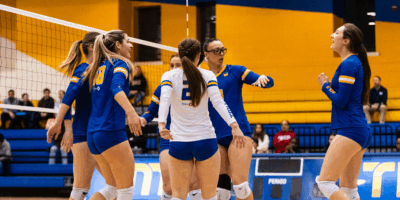By Rosanne Van Vierzen
As enrolment begins to escalate at Ontario universities, impending retirements and juicy offers from American schools may leave administrations scrambling to find professors.
“We have a looming faculty shortage crisis,” said Michael Doucet, president of Ryerson’s faculty association. “Ontario’s universities are hanging on, whereas universities in the States are marching on.”
Doucet said Ontario professors are increasingly leaving for the U.S. because of high salaries and research grants, and he doesn’t really blame them for taking off.
Adding to the need for professors is the fact that enrolment across the province is slated to increase dramatically in 2003, when Grade 12 and 13 students graduate at the same time because OAC classes have been eliminated.
One third of Ontario instructors are expected to retire within ten years as well, Doucet said.
“Profs leaving for the States are a major point of concern,” said Arnice Cadieux, the executive director of public affairs for the Council of Ontario Universities. “There will be a substantial exit of faculty right at the point of peak enrolment.”
Joel Seguine, an information official at the University of Michigan in Ann Arbor, said his school isn’t actively recruiting Ontario’s profs—they come willingly for the money.
Michigan’s average full-time faculty salary is approximately $185,000 (Canadian), compared to an averge of $76,000 at Ryerson, but the large difference is also because of the university’s medical school.
“Most [professors] are attracted to the University of Michigan because we get the largest amount of research money of any public university in the States, and because the pay scale is high,” Seguine said.
The professor shortage has the potential to be especially great in high-technology programs, said Ryerson president Claude Lajeunesse.
“We worry about retaining our faculty members,” Lajeunesse said. “They are very much in demand. We always worry that they will either leave for other universities, for the private sector or for the U.S.”
Before Vincent Chan was hired to teach mechanical engineering at Ryerson, he looked into teaching at an American university.
“There are more research opportunities in the States,” he said. “They have money for lab equipment, technical staff time and research funding.
“Ryerson has one lab technician in the [mechanical engineering] building to do everything—five labs and one technician. American universities don’t have that problem.”
Imafe arts professor Hans Westerblom said he doesn’t blame professors who abandon Ontario for the U.S., because the province hasn’t shown enough support for the education system.
“We’re supposed to be the richest province, but we’re not committed to keeping higher education at good levels,” he said. “If you can find better paying positions, more opportunities for research and a higher-profile career in the States, then why wouldn’t Ontario’s young and ambitious go there?”
Even Lajeunesse admits there are some benefits of working down south.
“We’ve certainly seen an example or two of people moving to the U.S.,” he said. “It’s not only the salaries, it’s the working environment, the facilities that are available, and the research support.”











Leave a Reply